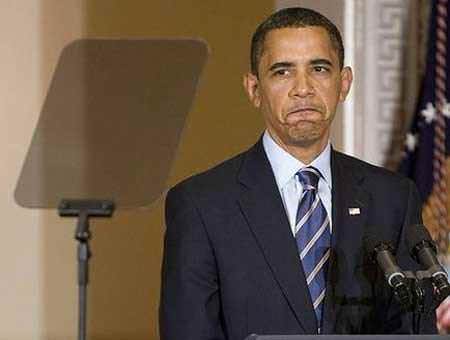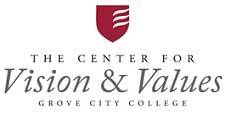
Grove City, PA –-(Ammoland.com)- The tragic shooting in Aurora, Colorado, which killed 12 and wounded 58, has again accentuated the important role presidents play as our chief civic priest.
The governor of Colorado and local clergy helped provide words of solace and encouragement to grieving, shocked and bewildered citizens—and local and state officials and thousands of residents joined in a prayer vigil.
Nevertheless, American expectations and their desire to enhance their public image led both President Barack Obama and Mitt Romney, the presumptive Republican presidential nominee, to offer comfort and consolation to survivors and the victims’ families.
President Obama told the survivors and the family members of victims he visited that “words are always inadequate in these kinds of situations,” but that his “main task was to serve as a representative of the entire country and let them know that we are thinking about them.” The stories that victims’ families and those recovering from injuries remind us, the president declared, “that even in the darkest of days, life continues and people are strong.” “Out of this darkness,” he promised, “a brighter day is going to come.”
Given his professed desire to highlight his Christian faith—perhaps, in part, because of continued confusion about his religious convictions and his troubled relationship with some religious groups—Obama, not surprisingly, quoted the Bible (Revelation 21:4: “He will wipe away every tear from their eyes, and death shall be no more. Neither shall there be mourning, nor crying, nor pain anymore, for the former things have passed away”) and asked “God bless all who helped to respond to this tragedy.” Similarly, at a memorial service in Tucson for the six people killed in a January 2011 shooting that also wounded Congresswoman Gabrielle Giffords, Obama declared, “the Scripture tells us that there is evil in the world, and that terrible things happen for reasons that defy human understanding.” Moreover, the president referred to one victim as being in heaven and asked God to “love and watch over the survivors.”
Recognizing that presidents are required to play this role of civic priest, Romney, who has typically said little about his own faith, quoted several passages from the Bible and the Book of Mormon, the scripture of the Church of Jesus Christ of Latter-day Saints. Referring to Jesus’ words in the Gospel of Matthew, Romney urged Americans to “offer comfort to someone” nearby “who is suffering or heavy laden.” He exhorted others to “mourn with those who mourn in Colorado,” a phrase that occurs both in Jesus’ Beatitudes and the Book of Mormon.
Evoking the Apostle Paul’s words to the Philippians, Romney stated, “Our prayer is that the comforter might bring the peace to their souls that surpasses understanding.” Quoting Paul directly from 2 Corinthians 1:4, the Republican added, “Blessed be God who comforteth us in all our tribulations, that we may be able to comfort them which are in any trouble.” He assured grieving families that “people in every part of our great nation” were praying for them.
Polls consistently report that Americans want their presidents to have a strong faith in God, which encourages our chief executives to stress their religious convictions and practices. Many Americans feel more comfortable when they know (or at least believe) that presidents pray about the decisions they make and the policies they adopt.
Given the absence of a national church and the United States’ robust Judeo-Christian heritage, our civil religion demands that presidents help sanctify America’s dominant institutions and values and provide comfort in times of crisis and tragedy. Custom, Congress and current events all require presidents to serve as our civic chief priest. Dwight Eisenhower, Ronald Reagan, and George W. Bush especially fulfilled this role. They reassured citizens that God ruled the world and loved them as they dealt with disasters in space, communist threats and the Cold War, terrorist attacks at home, and military action in Korea, Afghanistan, and Iraq.
As our chief executive and leader, the president proclaims the essential principles and values of the American civic tradition. He reinforces and promotes the nation’s shared civic beliefs, strengthening our core values and helping to unify and motivate citizens. He is expected to proclaim national days of prayer, celebrate the religious holidays of various faith communities, address national prayer breakfasts, lead citizens in mourning the death of statesmen and heroes and write letters of condolences to grieving families.
Most Americans find religious rhetoric to be inspiring, reassuring, and soothing in such situations and appreciate a president’s evoking of God’s aid, calls for prayer, and thanksgiving to the divine in times of war, natural disasters, terrorist attacks, and other tragedies.
Therefore, presidents, regardless of the depth of their own faith, will likely continue to serve as our nation’s principal priest.
About The Center for Vision & Values at Grove City College
Dr. Gary Scott Smith chairs the history department at Grove City College and is a fellow for faith and the presidency with The Center for Vision & Values. He is the author of “Faith and the Presidency From George Washington to George W. Bush” (Oxford University Press) and “Heaven in the American Imagination” (Oxford University Press). © 2012 by The Center for Vision & Values at Grove City College. The views & opinions expressed herein may, but do not necessarily, reflect the views of Grove City College.

